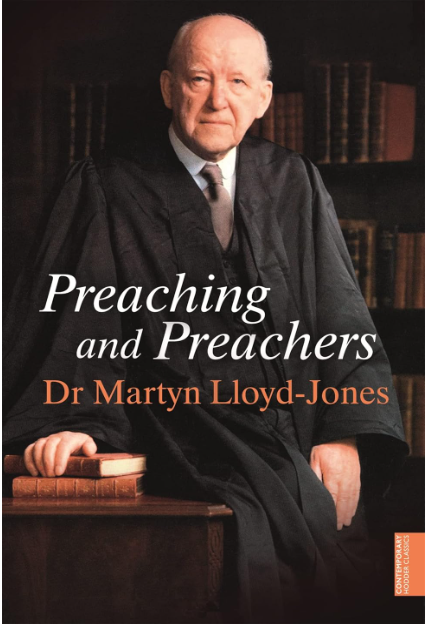Called to Preach or Teach? A Reflection on Discernment
Another reflection paper. I am done with my course on Christian social ethics. This time, it's Homiletics II. I submitted this paper to our instructor on December 10 last year.
In theological education, homiletics is under practical theology. It deals with the study and art of delivering a message based on the exegetical study of the biblical text.

Introduction
The textbook this time is Preaching and Preachers by Dr. Martin Lloyd-Jones, and my focus is the 6th chapter.
I chose chapter 6 specifically due to the prospect of direct subjective reflection it contains. After all, it refers to preachers, possibly me.
Before reading, I had the assumption that Dr. Martin would further criticize modern preachers—who, as noted in Chapter 1, prioritize form over substance (and now, perhaps, their character). Instead, it was a guiding material for (1) discerning the call, (2) the qualification, and (3) the training of the preacher. I would elaborate on the first two since it has something more to do with my reflection.
The Calling to Preach
The chapter began by declaring that not everyone is called to preach. There should be a distinction between an official calling to the pulpit and those who share their faith informally. While all Christians are called to give an account of their hope and testify to the Gospel in their daily lives, the office of preaching is reserved for those qualified, which includes the ability to teach, speak, live morally and spiritually, and be called and set apart by God for this purpose. This caused me to question my status and whether I belong to this particular calling.
Dr. Martin, in response, told us how we discern this calling. Men who are called to preach are “disturbed” in spirit. This disturbance is characterized by the desire, questioning, and awareness of the pressure to preach. This pressure, of course, is the work of the Holy Spirit.
Moreover, the preacher called to the pulpit is so overwhelmed by the gravity of his task that he feels unworthy to deliver God’s word. There is a sense of inadequacy, contrary to what we usually see in public speaking, which is characterized by confidence. The discernment of the preacher’s calling is subjective, yet the Church is also there to make an objective assessment as a witness if the Christian is truly called to preach.
The Qualifications of a Preacher
The qualification to preach should be evidence of this calling. A preacher should be a man of great spirituality. In terms of ability, he must have adequate mental capacity and ability to communicate effectively. This is perhaps the most reflective part of the chapter.
As a seminary student, I acknowledge my mental resilience and critical thinking, and my speaking ability is open to improvement. However, as this section points out, those struggling with sin are not fit to preach:
The blind should not tell the blind how to see.
Reading this, I see myself as unworthy and unqualified to preach. Though I must say that I have considered the possibility—but only to that extent—I was never fully convinced since I’ve always thought that I would be a professor instead, either theological or educational (if you can do something else, do it as Dr. Martin tells us in this chapter). However, my views on this are still developing, and my perception remains unclear.
Conclusion: Seeking Illumination in Prayer
Overall, I find this chapter speaking to me personally. It had made me question my standing before God and His calling regarding a particular office. At times, I consider myself called to preach from the pulpit, but the evidence seems to point otherwise. Perhaps it is more fitting to categorize myself as part of the address in Acts 8:4, where I am called to 'gossip' the word in conversation rather than 'heralding' it. I can do so by teaching at this school and in secular universities as a theology, philosophy, or education professor. After all, I am in seminary, being equipped to preach the Word of God. And to what nature of 'preaching' that will be—that I need to discern. I would not want to be misguided into an office that God has not called me to, much like the illustrations Dr. Martin used in his conversations with other Christians. I can only ask God in prayer to illuminate my mind on these matters.